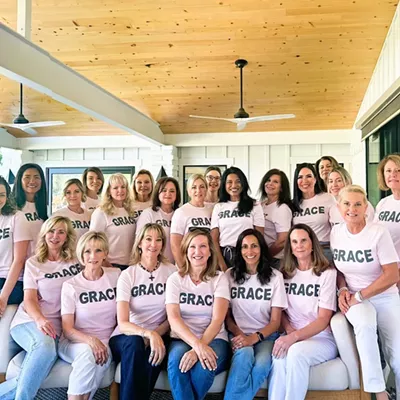Political newcomer Puig, 52, stresses that immigration issues need to be fixed on both the Mexican and Canadian borders. Supporting a guest-worker program, Puig says: "Let (people who are) here, stay here. Run background checks on them, and if they pass, let them stay."
Prezelski, a 36-year-old incumbent, emphasizes the role he currently plays in the Legislature. "I admit I really, really hate Phoenix," he told a debate audience last month, "but it's important to be there to fight. ... It's all about standing up for the community."
Lopez, 57, is the other incumbent and has been in office for six years. If re-elected, she says she will push for more day-care funding for low-income families. "We increased the amount of (reimbursement) rates from 2000," she offers, "and my goal is to get that higher."
At 75, Liggins indicates her attention would be focused on seniors and working families. "We're screwing around with middle-wage workers," Liggins says, believing the minimum wage should be raised in Arizona to at least $7.15 an hour, $2 above the national level.
All candidates oppose any expansion of the recently enacted pilot program for school vouchers, and all have their own ideas for improving the public school system.
Prezelski hopes the Legislature, after years of playing around with the issue, will finally address funding for teaching English-language-learning students in an "honest way." He proposes a formula for distributing state money based on demonstrated need; he thinks that would provide schools with the financial resources they require to succeed.
In addition to opposing both vouchers and tax credits for private schools, Lopez will push for more state support for higher education. "We did a little for the state's universities (this past session)," she says, "but it was a pittance. We need to provide more support. That's not an expense, but an investment."
Liggins wants more money spent on vocational education as well as preschool and all-day kindergarten. To pay for these programs, she would target tax cuts. "Instead of getting $3 or $4 back somewhere," Liggins says, "we should put that money into education and vocational training. ... Public education should be the best thing."
Puig is another supporter of vocational education for students who may not be going to college, and she wants to see programs such as nursing-assistance classes offered in high school. Puig also criticizes the AIMS test, saying: "It's hard to put four years (of high school) into one AIMS test."
On another topic, Lopez thinks it is time the Legislature starts dealing with the problem of medically uninsured people in Arizona.
"We probably need to expand Healthcare Group (of Arizona)," Lopez says of the state program to help small businesses provide medical insurance to their employees. However, she points out the requirement that applicants must not have had insurance for six months in order to qualify, and stresses the importance of getting rid of that regulation if the program is to succeed.
For her part, Liggins insists the United States needs national health insurance. "I'd push for that," she says optimistically, "and hope the Republicans would vote for it."
As for how she would deal with those Republicans if elected, Liggins told the 17 people attending a July 11 debate: "I know people on both sides of the aisle. You need to learn to cooperate, but I don't believe in one-sided compromise."
Favoring a sliding-fee scale for immunizations and medical screenings for senior citizens and school children, Puig thinks more publicity for current health-care programs is essential. She additionally would like to see free or reduced-cost supplies given to needy people with chronic illnesses.
"That might not be (politically) realistic," Puig says, "but I'd still fight for it. After all, it's cheaper than putting people in the hospital."
Both Liggins and Prezelski predict the minimum-wage initiative on the November ballot will pass, but he has sharp words for state lawmakers who consistently avoid the issue of low salaries in Arizona. "Some of my colleagues in the Legislature oppose it," Prezelski says of the initiative, "because apparently, they think God told them to be against it."
Concerning medical care, Prezelski also wants to address the problems of the Healthcare Group program. "Business organizations are interested in working on it," he suggests, "and I think we can make a little more progress, but it's a long-term project."
Liggins says she is running for the Legislature because she wants to step up from her years of community involvement. She says looking out for middle-class people will be her main concern in the Legislature.
For her part, Puig says she is in the race to get more involved in helping the community. "I see those living on minimum wage and so many who are illiterate," she explains.
On the other hand, Prezelski declares: "I get passionate about issues many people aren't interested in. ... I think I've been very effective, (in part) because I have a reputation for asking obscure questions."
Finally, Lopez states that if re-elected, she "will continue to be a strong and passionate advocate for children, families, education and health care."
The two winners emerging from the Sept. 12 primary will face Republican Bruce Murchison in November in the election to represent the district, which includes much of the city of Tucson south of 22nd Street.







